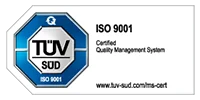



Setting Up Technology Teams To Help SME Businesses Grow
 Setting Up Technology Teams To Help SME Businesses Grow.
Setting Up Technology Teams To Help SME Businesses Grow.
According to Business Matters (a leading UK business publication), research has shown that three-quarters of UK SME businesses may be failing to embrace workplace technologies such as cloud, mobile working, artificial intelligence, and increasing connectivity and digitalisation, This is stifling their growth, productivity and employee engagement due to not having the right technology and talent in place.
Many established small to medium-sized businesses (SME businesses) are always looking to grow to their next level. Their growth typically involved in how they embrace and leverage digital solutions. Digital in today’s world includes websites, CRMs, ERPs, internal workflow solutions, customer experience apps, integrations to the external world, marketing tech and sales tech, the list goes on.
Typically, many businesses have grown from a stage of having few developers who did everything for them such as develop, take care of servers and host solutions, etc.
While they have been busy managing their current environment, the world of technology has changed and some of the new roles such as application security specialist or user experience designers came in which is difficult for them to transition as they have always seen software development as one or a few developers. New world of digital-enabled businesses changing it all.
Agile development and project management have changed how we build software. The introduction of roles such as product manager and product owner has brought in clarity on who manages requirement backlogs, flow vs stakeholder relationship between product and business.
The emergence of cloud and continuous integration has changed the game of how one develops and releases software.
SME Businesses used to build software as if it never changes, now we all know building software is an evolution journey from minimum viable product to a matured state where product found its market fit, or business fit and has an established line of growth and purpose.
Having a diverse team with the broad skill set needed to create an MVP is crucial from the start. If you can’t bring even a basic version of your product to market, or it doesn’t display the potential benefits of the more polished version, then you are going to fail.
Tech development requires such a range of expertise and you’re very unlikely to find all of it in one or two people to the depth you need. Neither will they offer the diversity of thinking and viewpoints that can make your product into something outstanding.
Product Manager, Product Owner, UX Designer, Business Analyst, Technical Architect, testers, technical writers, onboarding trainer, the list goes on, and each role is critical to the development of your product. If you’re relying on just a small team, gaps will appear down the line which will cause cost, delays and even critical failures.
Product oversight and management
A product manager is responsible for the technical management and control of the production process. This differs from the role of the product owner, who represents the customer on the development team and manages the product backlog, prioritising tasks.
Product Development
This is the engine room of a good tech development team:
- Business Analyst: Business analysts work with organisations to help them improve their processes and systems. They conduct research and analysis in order to come up with solutions to improve business processes and systems
- Technical Architect: Designs the structure of systems and ensure the proper architecture is implemented
- Dev Ops Engineer: Works with software developers, system operators, and other production staff to oversee code releases and deployments
- Lead Developer: Experienced software developer with oversight of other developers or multiple projects to ensure team effectiveness
- Senior Developers and Developers: These people build and create software and applications
- UX designer: Designs products to create the best user experience
- Front end Developers: Create front end website or web application so that a user can see and interact with them directly
- API and Integration Specialists: Enables the interaction between data, applications, and devices to ensure the seamless functioning across all parts of your product
- Cloud Hosting Specialist: Helps companies migrate their information and services into the cloud
- Test Manager: Leads quality and test advocacy, resource planning and management, and resolution of issues that impede the testing effort
- Testers: Tests software for bugs, errors, defects or any problem the user may come across and provides reports to the project team
Client resources
It’s sometimes easy to overlook customer care when you’re developing a new product offering but without this crucial link, the best app in the world won’t get off the ground if you earn a reputation for poor service.
You need a specialist technical writer to prepare instruction manuals, journal articles, and other supporting documents to communicate complex and technical information more easily. Onboarding trainers and demo specialists are also critical for making the customer’s transition to using your product as smooth as possible by creating technical training programmes or demonstrations to teach and equip users on how to use your product to full effect and also for the growth of SME businesses.
Diversity
Diversity is about more than ticking the right recruitment boxes and improving corporate image. Diversity of backgrounds, beliefs, and thinking plays an essential role in team productivity, introducing innovation and attracting and retaining the full range of tech talent you’ll need.
Different strengths fuse into a team that produces better, innovative results more likely to respond to customer needs.
Leadership
A high performing team has an effective leader. A good CTO on your board will keep development on track and be strong enough to speak truth to power, providing the early input you need to avoid potentially costly mistakes down the line.
More than technical ability
In addition to technical competence, an effective team is also driven by a set of shared values and a vision that allows it to storm challenges and build a positive culture that attracts the best talent and encourages initiative from every member. A good leader should create an environment in which positive values can flourish.
A ready-made team?
It’s not easy collecting a group with the right diversity and complementing skill sets to cover all the tasks outlined above.
Posting job ads, shortlisting, interviewing and bringing new staff on board is costly and time-consuming. DO you have an HR organisation ready to cope? Building a comprehensive team can be a daunting task is one reason why people choose to outsource to companies like Incepteo to deliver the whole thing as a service while founders focus on sales and marketing.
There are a number of advantages to outsourcing key technology projects:
- Reduced operating costs
- Access to a team with talent, up-to-date knowledge and experience without the cost in money and time of building your own
- Flexibility to meet peak demands and reduce when necessary
- They bring a new and diverse perspective
With experience in developing MVPs into scaleable products and supporting them once they are on the market, Incepteo has access to the full range of specialist know-how for an end to end service.
We also hold to our key values, which attract and retain the best tech people to support our clients.
Share this:
Recent Posts
- Top 10 Benefits of Using AI for eCommerce Business Growth
- How Incepteo Excels in AI Consulting for Small Businesses
- Top 10 Challenges AI Fintech Companies Face and How to Overcome Them
- How Offshore Mobile Development Reduces Operational Complexity for SMEs
- Why Incepteo is the Leading Software Development Company for Startups
By Sector

How Can Incepteo Help You?


Quick Links
AI SERVICES
2024 © All rights reserved by Incepteo